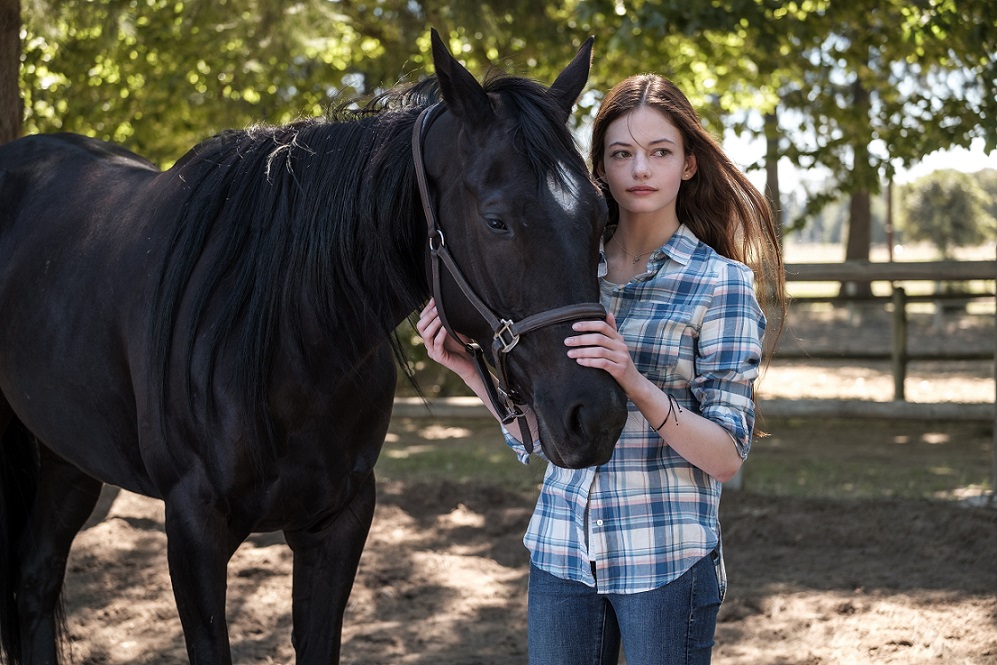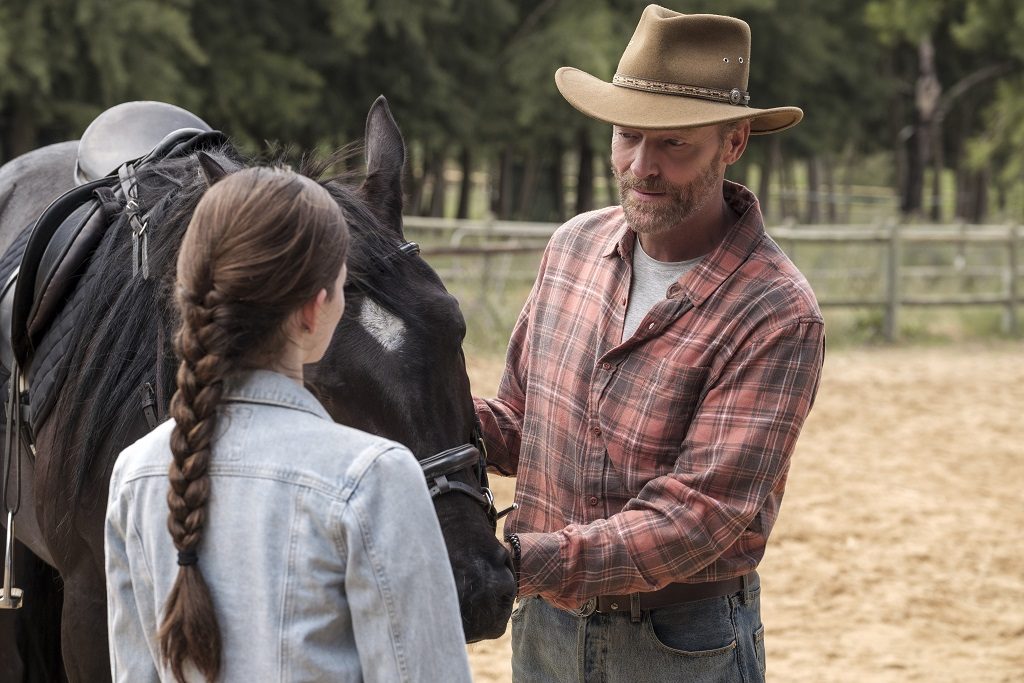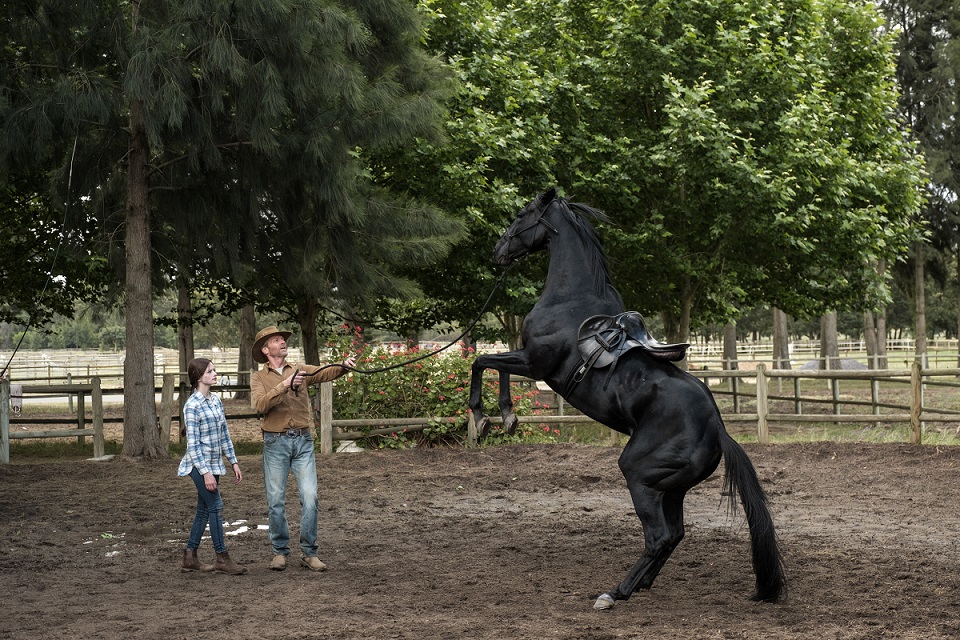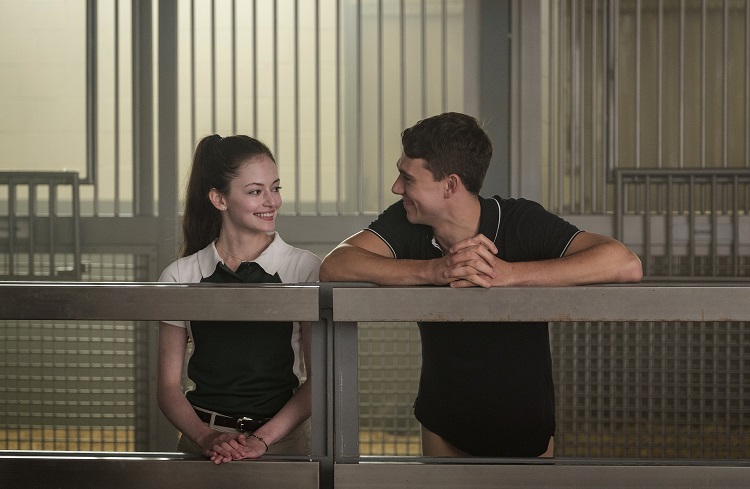
This feature is available for streaming November 27th on Disney+.
The 1877 Anna Sewell novel Black Beauty is one of the biggest selling books of all time. This tale, about the life of a horse and its many experiences with various owners, has enchanted young readers for more than a century. The latest film adaptation attempts to maintain the theme of encouraging animal welfare while updating the story to give it a modern twist. The movie is impressively shot and will certainly impress youngsters who adore horses, but is so earnest that most adults watching will find themselves rolling their eyes during several scenes.

This tale is narrated by a wild mustang named Black Beauty (whose inner thoughts are voiced by Kate Winslet). The equine details her early years spent with her mother, learning a positive moral and ethical code. But when the filly accidentally leads rustlers to the group, she is separated from her parent. Black Beauty is purchased by John Manly (Iain Glen) and taken to a ranch in New York state. The animal feels angry and guilty about the circumstances that have befallen her, but slowly learns that her new owner is kind and only breaks horses to help find them a home. Black Beauty soon makes a new friend in Manly’s niece, Jo Green (Mackenzie Foy), a sullen teen whose parents have passed away. The two lost souls quickly form a tight bond. As the years pass, they become separated and Black Beauty attempts to survive various hardships in the hopes of someday being reunited with Jo.

The original book also anthropomorphized its title character and allowed it to share human-like emotions with the reader. Winslet certainly does her best, but some of the lines come across as awkward, particularly early on in the film. While the narration clarifies the story and assists in moving things along quickly, it is strange and does take some getting used to. We hear Black Beauty analyzing the new people in her life through her thoughts and later translating presumed conversations with other horses in English, but does not always understand what’s being spoken directly to her by human keepers. It’s admittedly unfair to critique a kid’s movie for logic issues like this, but the contrast does stand out at times.

And while some of Black Beauty’s comments are surely translated directly from the source material, they sure do sound on-the-nose and wince-inducing for older viewers. The animal becomes fond of the young human protagonist very fast and explains how even though she is a wild mustang, she still wants Jo to ride her and help the girl grow into a fearless woman. It’s all very syrupy and comments like, “We were two beings and yet… for just a moment… we were one,” follow with the two riding in front of scenic backdrops. This relationship between the equine and Jo is the sole focus of the first half of the picture. Other owners are squeezed in briefly over later sections, but feel comparatively underdeveloped and one-note.
At least the film looks great. Even if you might be wincing at some of the spoken wordplay, the photography is consistently impressive. As mentioned, Black Beauty spends a lot of time moving about in gorgeous locales and the camera catches some beautiful images of the horse racing along the beach and trotting majestically at sunset. Everything about the picture looks impressive and the cinematography at least provides something to focus on during the narrative passages.

This is ultimately a children’s film about a young woman and her special bond with a mustang who has experienced the same kinds of personal tragedies. The movie has some noble things to say about treating all living things with kindness and respect, but it’s often blunt and overly direct in its delivery of these themes. If you’re a young person who loves everything about horses, then Black Beauty will be engrossing. However, be warned that for adults, large sections of the film will come off as overly sentimental.


